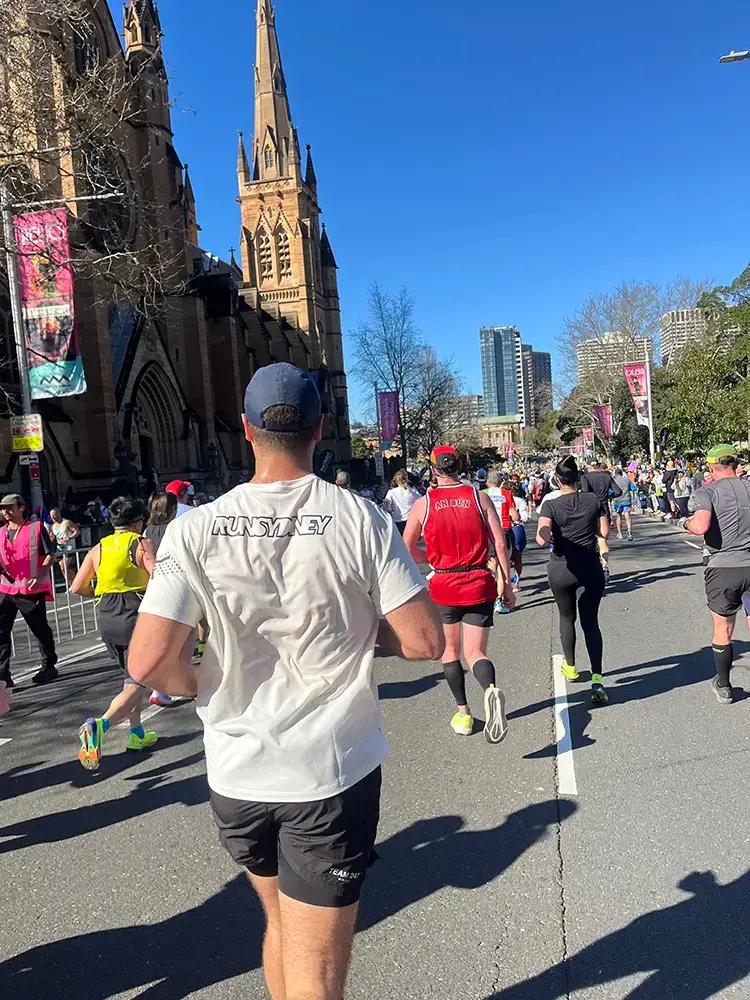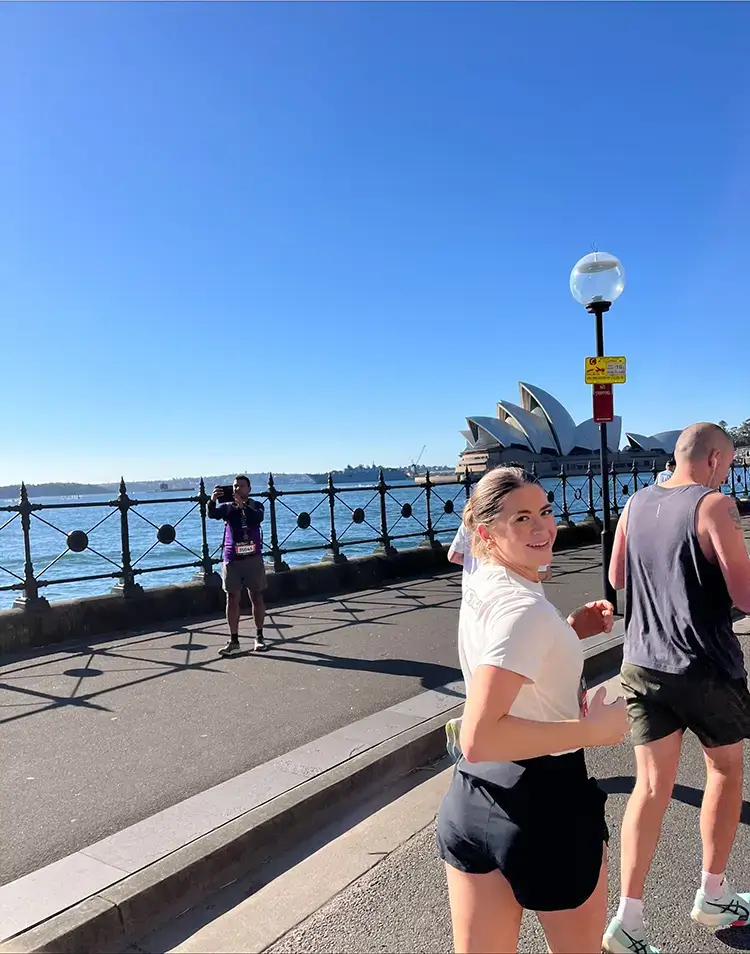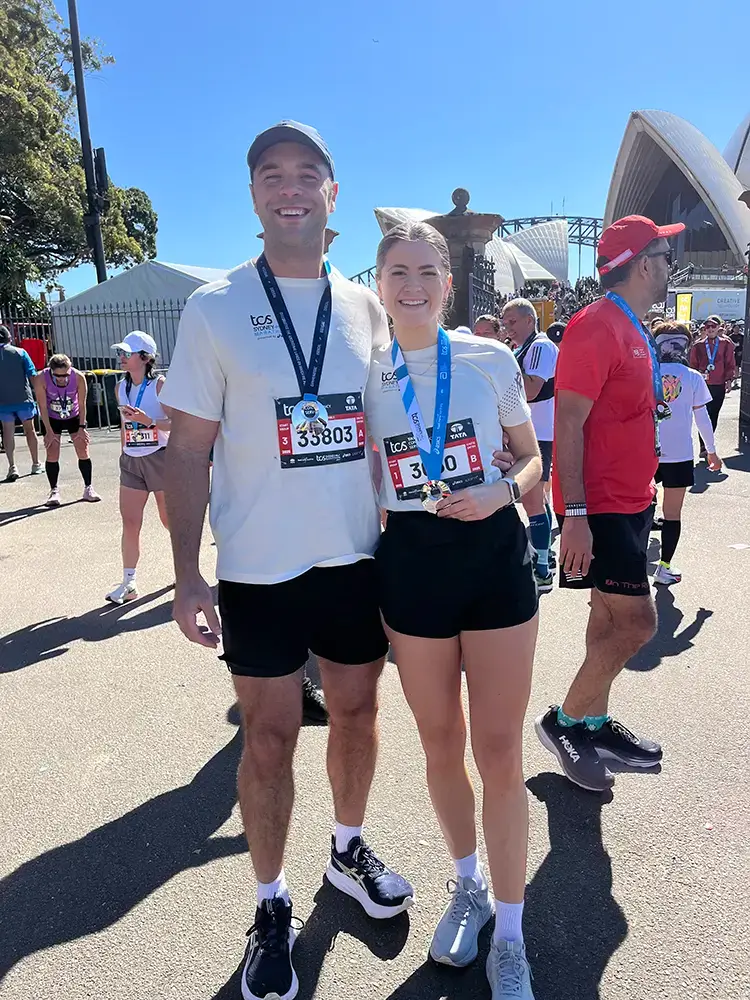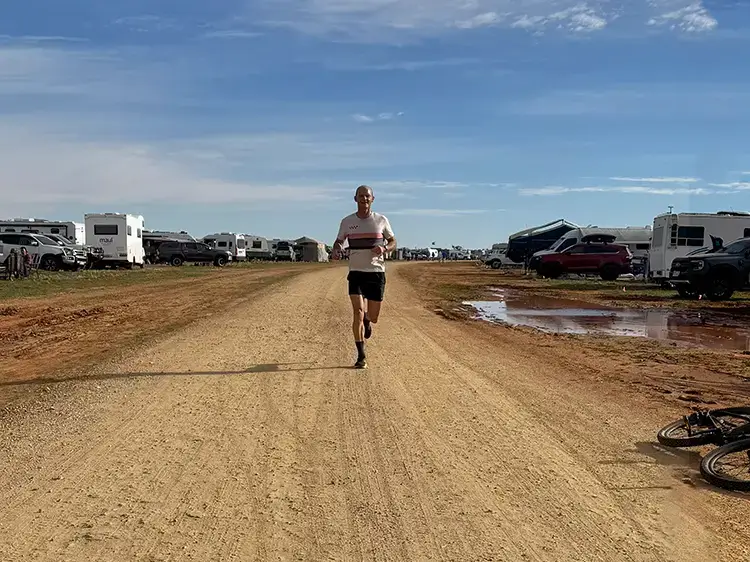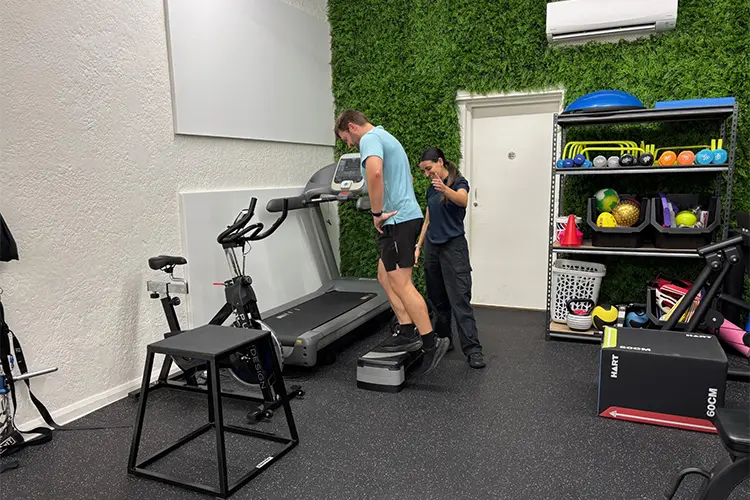How do you know somebody is doing their first marathon? They’ll tell you.
Running your first marathon is one of those life experiences that you’ll never fully understand until you do it. It’s equal parts exciting, exhausting, and life-changing, but there are so many little things no one tells you until you’re in the thick of it. Here’s what I learned along the way.
The Training Nobody Warns You About
Training for a marathon is more than just lacing up your shoes and running a few extra kilometres each week. It takes months of careful planning and sacrifices that can sneak up on you.
- Your weekends change. Long runs don’t just happen- they need to be scheduled, prepared for, and recovered from. Suddenly, your Saturday mornings belong to the pavement.
- Illness is always lurking. One sniffle or head cold in the final weeks can derail your confidence and taper. You learn to wash your hands like a surgeon and side-eye anyone who coughs near you. I ended up catching a cold the week before and I wasn’t sure whether I’d be able to go through with the marathon.
- Running gels aren’t cheap. Stocking up on gels, electrolytes, and hydration tablets feels like a second mortgage. You swear you’ll find a cheaper option, but come race day, you stick with what works.
- You become a broken record. At some point, all you can talk about is your training. Friends and family politely nod along while you debate splits, carb loading, or shoe foam density.
- Your social life shrinks. Late nights, drinks, and spontaneous plans start clashing with your training schedule. Before you know it, running has quietly become the biggest priority in your calendar.
Marathon Day: The Rollercoaster
The big day is electric. You’ve been visualising it for months, but the reality is a cocktail of emotions that no training run could prepare you for.
- The crowd is your fuel. Strangers cheer you on, hand out lollies, and clap like you’re a hero. Their energy carries you further than your legs sometimes can.
- The wall is real. Somewhere between 35-42km lies uncharted territory. Your body screams to stop, your brain negotiates, but you push on with grit you didn’t know you had.
- Highs and lows can happen within minutes. One kilometre feels effortless; the next feels impossible. It’s a game of mental gymnastics as much as physical endurance.
- The final kilometre is pure magic. No matter how wrecked you are, something inside you lifts. The finish line comes into view, adrenaline floods your veins, and you run with everything left in the tank.
- The tears come uninvited. Relief, pride, exhaustion—crossing that line is overwhelming. For some, it’s sobbing uncontrollably. For others, it’s quiet disbelief. Either way, it’s unforgettable.
After the Marathon: The Recovery Nobody Talks About
You’d think the hardest part is over, but your body and mind are about to surprise you again.
- Food feels impossible. Despite being dehydrated and depleted, you might not feel hungry for hours. Even the thought of eating can be off-putting.
- Your legs turn to concrete. The lactic acid build-up makes stairs a nightmare. Walking feels worse than standing. And yet, you still wear your medal everywhere.
- Your body rebels. Fevers, chills, or hot flushes can strike as your system struggles to regulate temperature. It feels like the worst flu-but it’s just your body in overdrive.
- Sleep doesn’t come easy. The adrenaline and muscle soreness make it hard to settle. The first night post-marathon can feel longer than the race itself.
- Delayed soreness hits differently. The next day, even shuffling feels heroic. You’ll laugh and wince over the universal “marathon hobble.”
- Did you love it or hate it? That question lingers. For days, you’re unsure. But then, slowly, the memory of the pain fades and the pride grows- and you’ll probably start Googling your next race.
Running your first marathon isn’t just about covering 42.2 kilometres- it’s about learning what you’re capable of when you push past limits you didn’t think were possible. It’s messy, it’s emotional, and it changes you in ways that go far beyond running.
At Physio Club, we have physios with special interest and experience treating endurance athletes. Check out our website for more information.
